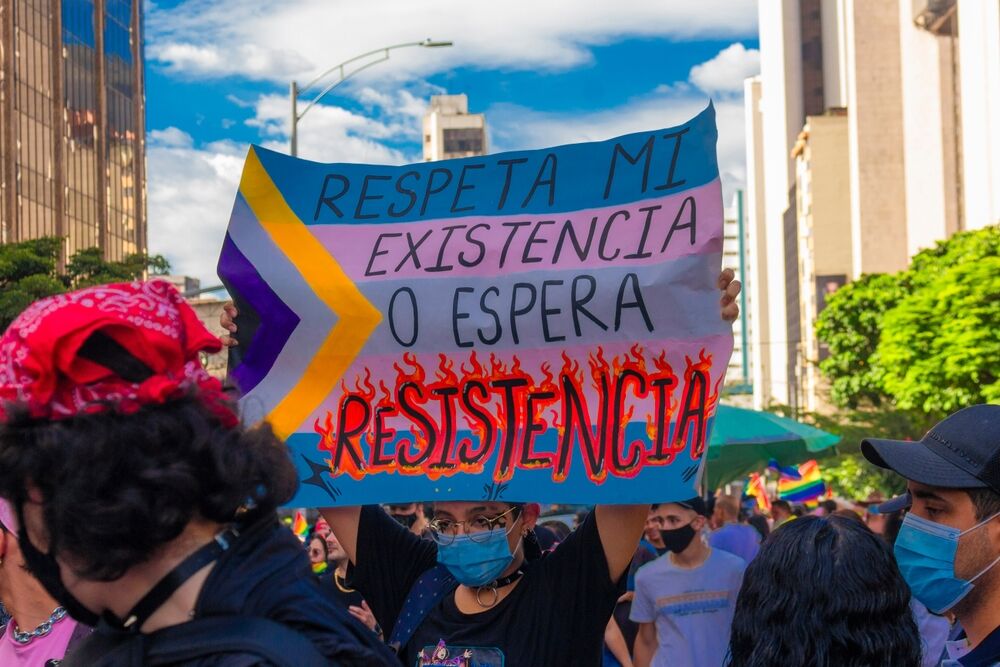
Medellín, Antioquia – Colombia. July 4, 2021. Colombians walk through the Gay Pride parade
Photo: Shutterstock
In Colombia, armed groups are targeting transgender women along with other so-called undesirables in a violent campaign of “social cleansing” across the country.
Paramilitaries in Colombia—still operating despite a peace agreement with the country’s largest rebel group, the Farc, in 2016—killed more than 40 transgender women last year, according to reporting in The Guardian.
Related:
Eight more died between February and April this year, activists say, in an effort by armed groups to create a “parallel state” where trans women and others seen as damaging to society are punished or killed.
Global perspectives delivered right to your inbox
Our newsletter bridges borders to bring you LGBTQ+ news from around the world.
In Caquetá, a sparsely populated department in southern Colombia and a rebel stronghold, flyers began appearing on the streets and circulating through WhatsApp warning of “social cleansing” of “fa***ts, lesbians and men and women who destroy homes,” all of whom would be considered legitimate military targets.
One was Tatiana Cespedes, 51, a trans hairdresser who was working in her home salon when three armed men burst in and warned her she had a week to leave town or she would be killed. After hiding for several days, she packed a small bag and fled with her dog in the night.
Cespedes said she’s lived through similar periods of rebel conflict and endured the sexual violence that accompanies it.
“All I did was bear their desires because every time they got drunk I had to pay the price,” she said. “At times three, four, and up to five men would knock on my door and I was forced to open it. If I refused, they would assault me.”
Another trans woman from Caquetá, Yesenia Rodríguez, said she and other trans women in Colombia are limited in their ability to make a living because of discrimination and forced into sex work because of a lack of opportunities.
“When I started my transition, I used to work at night. At that time we would receive flyers announcing social cleansing of drug addicts, prostitutes, and fa***ts. Luckily, nothing happened to me, but a friend of mine was killed,” she said.
“As a young woman, I didn’t have any other option but to sell my body to survive. But now that time has passed it is difficult for me to work even in this.”
The 2016 peace agreement between the Farc and the Colombian government was supposed to end decades of conflict and included a formal recognition that LGBTQ+ people were victims of the conflict, along with a guarantee of political participation. That promise has fallen away with the armed groups’ resurgence and renewed threats to the LGBTQ+ community.
Don’t forget to share:

